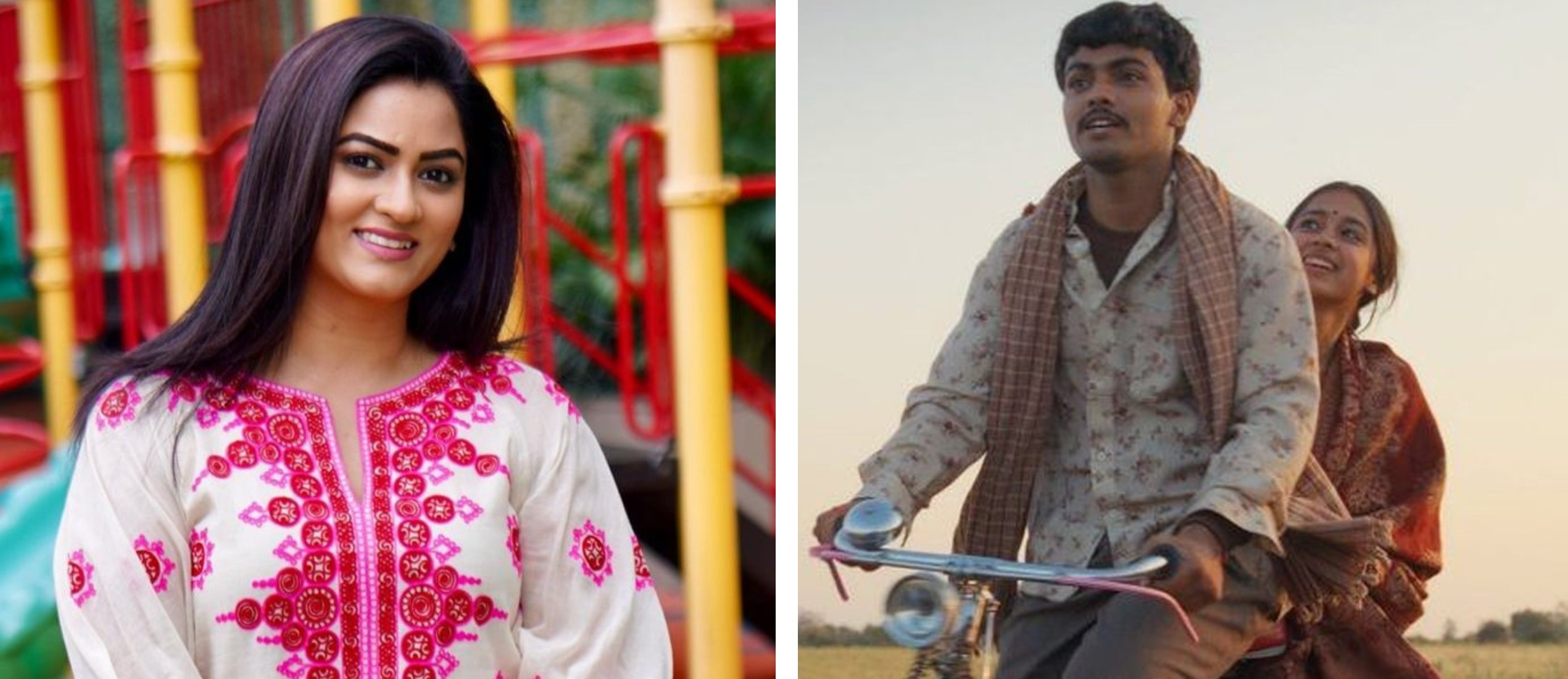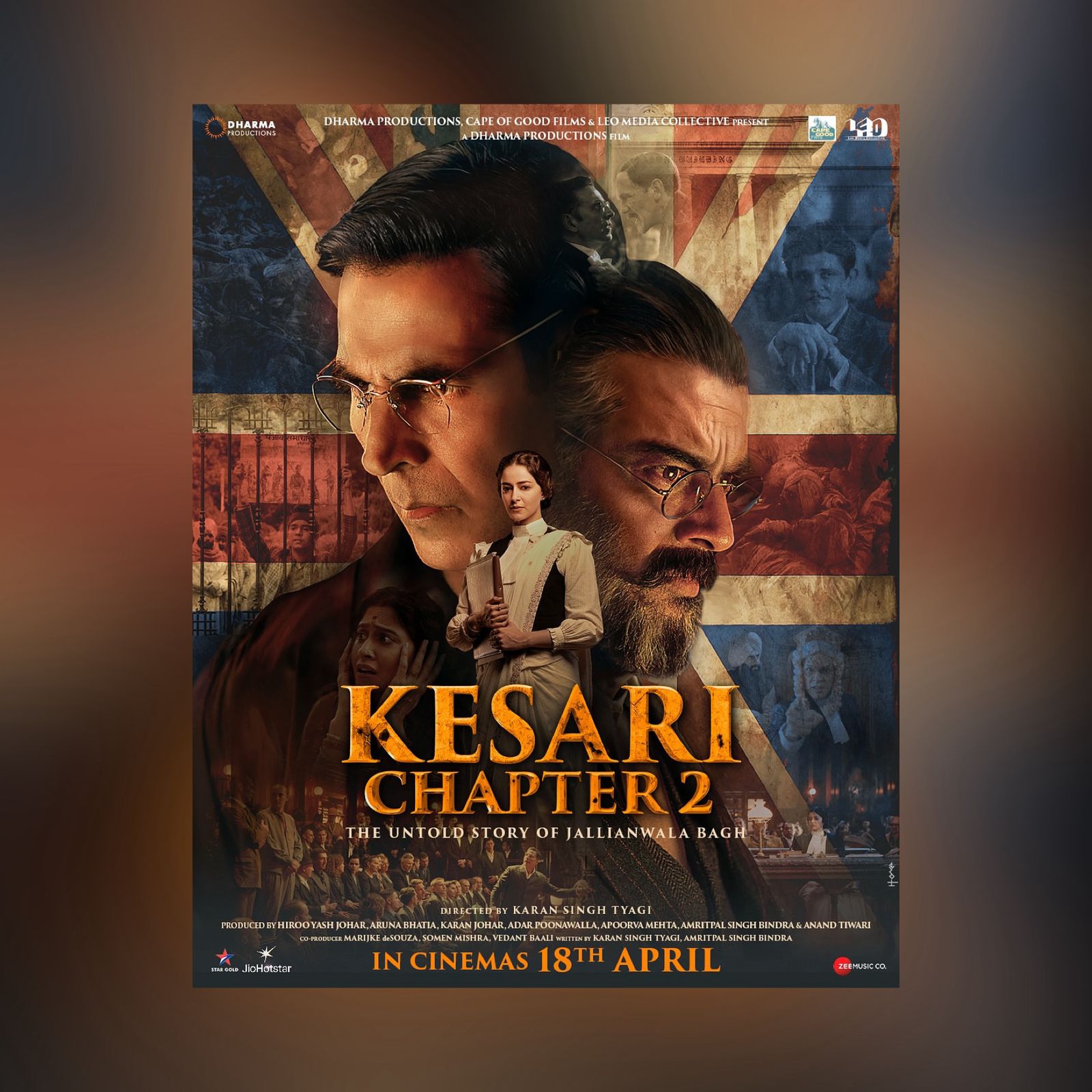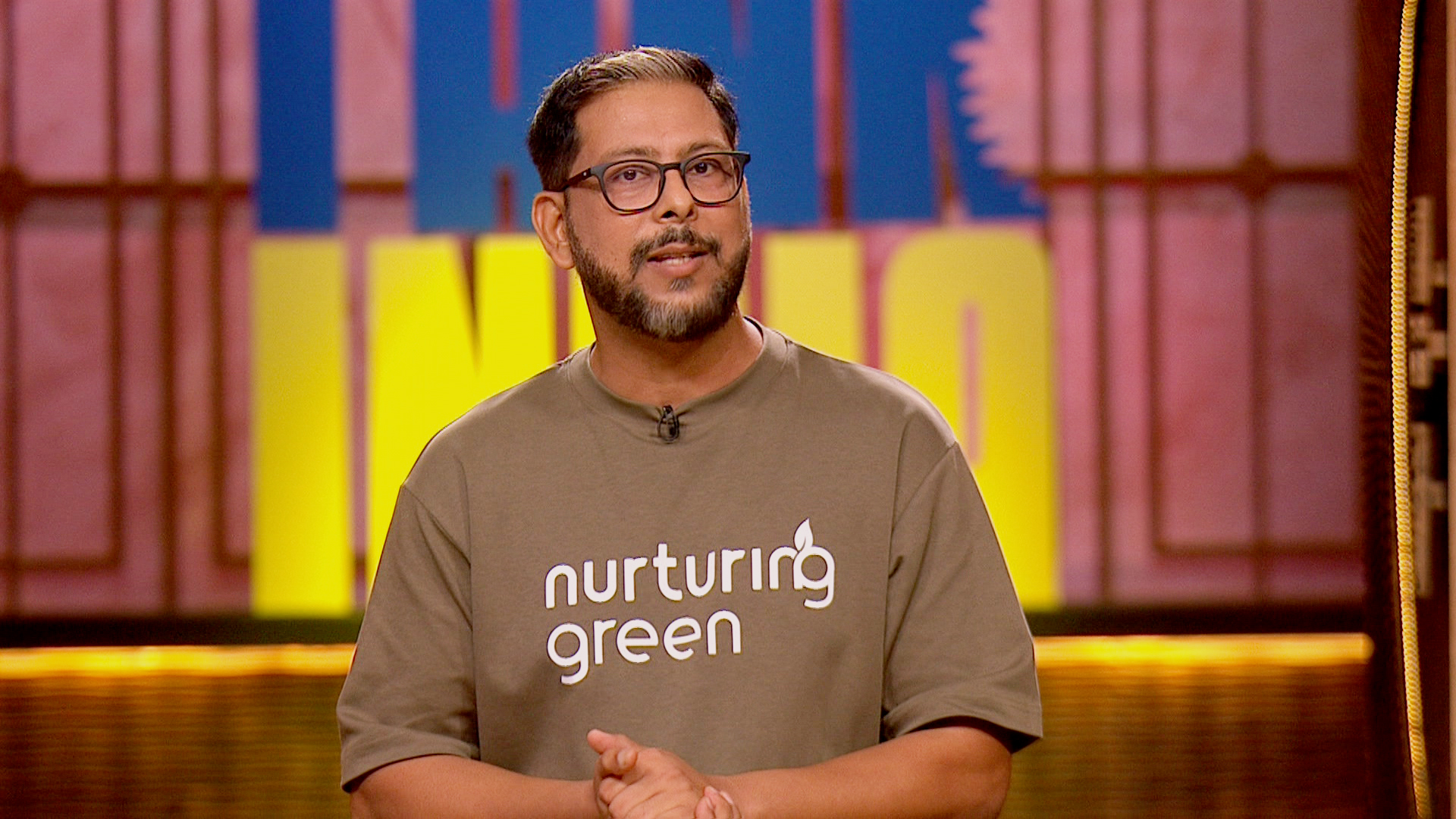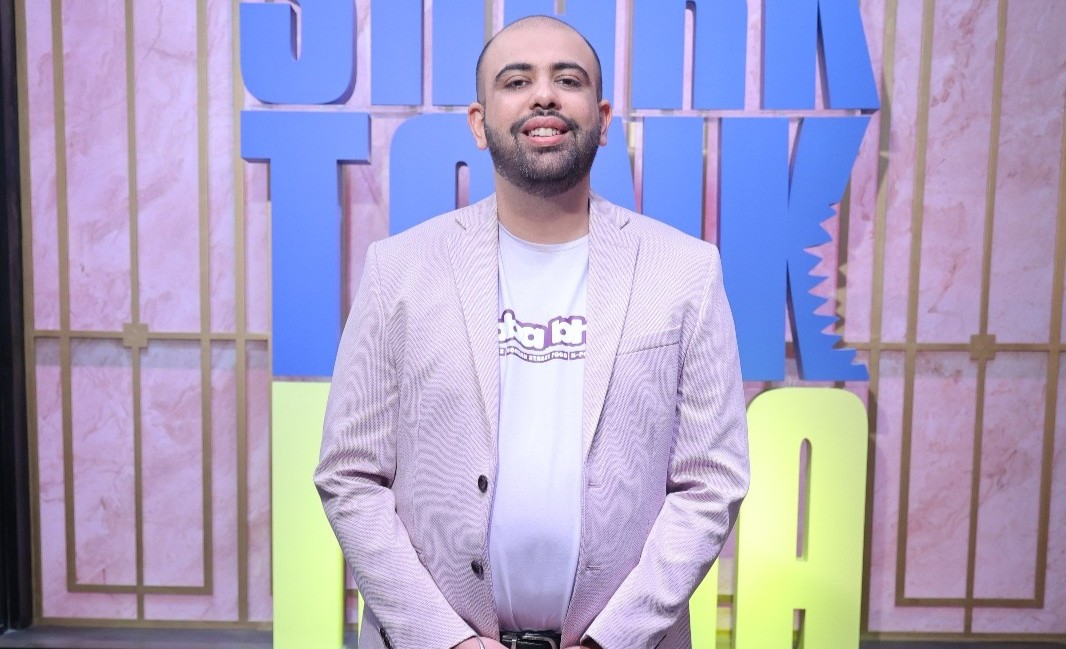
“I am grateful for all the love Laapataa Ladies has received” – Sneha Desai
‘Laapataa Ladies’ has had quite a journey. Last year, the film made it to the Toronto International Film Festival and garnered accolades for its sensitive portrayal of women in heartland India and the kind of struggles they go through. The Kiran Rao-directed film released in the theatres on 1 March, 2024 and did respectable numbers at the box-office. Its audience base grew considerably once it started streaming on Netflix. The film has now been selected as India’s official entry for the Oscars.
Sneha Desai, who wrote the screenplay and dialogues of ‘Laapataa Ladies’, is a part of the writing team of the film which also has Biplab Goswami (story) and DivyNidhi Sharma (additional dialogues). ‘Laapataa Ladies’ is a special film for Sneha as it marked her debut in cinema as a screenwriter. Sneha stared her journey as an actor on the Gujarati stage 25 years back and ventured into writing more than a decade ago.
In this interview, Sneha talks about her journey as a writer, love for acting, the experience of working on ‘Laapataa Ladies’, controversies courted by ‘Maharaj’, getting inspired by husband Alap Desai, her strengths as a writer, upcoming projects and more.
‘Laapataa Ladies’ has just been declared as India’s official entry to the Oscars 2025. What was your first reaction when you received this news?
The initial reaction was of utter disbelief, followed by incredible happiness and a feeling of gratitude. For one’s first film to receive the kind of adulation ‘Laapataa Ladies’ is receiving, one truly has to be God’s favourite child. I am grateful for all the love ‘Laapataa Ladies’ has received.
‘Laapataa Ladies’ was set in the year 2001. The story, however, continues to be relevant today. Aamir Khan Productions had the story written by Biplab Goswami. You were brought on board to write the screenplay. How was the experience of fleshing out the screenplay for the film?
It was wonderful working with the entire team. Aamir sir and Kiran ma’am are two of the brightest minds we have in the industry. To be offered work by them was a great privilege. It was also a challenge at the same time. The entire process of brainstorming with them and seeing the script from their perspective was a great learning curve. The questions they asked and the solutions we found together gave me a lot of insight into how films are written and made. It has made me a better screenwriter than I was.
Apart from ‘Laapataa Ladies’, you also had Yash Raj Films’ ‘Maharaj’ release this year. Do you look at 2024 as an important year in your career as a screenwriter?
Absolutely! Both these films took a lot of time to release. ‘Maharaj’ took four years to come out. ‘Laapataa Ladies’ arrived in the theatres three years after we first started working on it. Covid was one of the primary reasons behind these films getting delayed. I feel grateful for the fact that these films were not shelved, that they saw the light of the day and eventually received a lot of appreciation. All these experiences have taught me to be patient. Things happen when they are destined to. One has to wait with perseverance and positivity. As they say, all is well that ends well.
‘Maharaj’ was a story set in the 1900s. The film spoke about superstition and blind faith. The film was adapted from a book. A play, too, had been put together from the information given in the book. Did you anticipate the film to face the kind of controversy it did?
Very honestly, yes. We knew there would be some resistance. We were not so worried about the resistance because we knew the film was not being made to create sensationalism or a toxic environment. The film was not made to hurt or provoke the religious sentiments of the believers. It was made to highlight that certain people could end up maligning or stigmatising an entire religion. It is the bad in the religion that needs to be tackled and not the religion itself. The makers are one of the biggest and most responsible production houses in the country, they would never put their name on the line unless they had a very clear perspective in their mind. The clarity of our intent kept fear at bay.
I am a very proud Hindu. I believe in the sanctity of my religion very deeply. I would never do anything that would malign any religion or hurt people’s sensitivity. It is just about weeding out the bad that is there and tackling it ourselves. The problems in our homes have to be solved by us. No outsider can do it.
You were born in Mumbai and started your career as an actor in Gujarati plays. How did writing happen?
I have primarily been an actor. Writing happened after my son was born and I took a sabbatical from acting actively on stage. My core competency used to be acting. Now, it is writing. I have done more than 2000 shows on the Gujarati stage as an actor. I have written many plays in which I ended up acting in myself. Theatre has been and continues to be one of the most rewarding engagements of my life.
Did your family have people who were artistically inclined?
I was born into a Gujarati business family in Mumbai. My father was inclined towards the arts but he was a businessman. My in-laws are into performing arts. They are musicians. They are the ones who were in touch with musicians, poets, and writers. Most of my artistic grooming, including sharpening my linguistic skills, happened after I got married and moved into my in-laws’ house. It is a great privilege to have been wedded into a family which has helped me blossom.
Which was the first TV show you worked on as a writer?
‘Mrs. Tendulkar’ was the first TV show I worked on. I have had a very enriching experience working with Hats Off Productions. I have done most of my work on television with them. I have worked with them on shows like ‘Mrs. Tendulkar’, ‘RK Laxman Ki Duniya’, ‘Byaah Hamari Bahoo Ka’, ‘Wagle Ki Duniya’ and ‘Pushpa Impossible’. It has been a great association with them. JD Majethia and Aatish Kapadia are mentors and highly valued colleagues.
TV and films are two very different mediums. How has been your experience of working on these two mediums?
Television is something you do on a daily basis. You have to deliver an episode every day. Sometimes, you end up working on multiple episodes in a day. While writing TV shows, one learns how to prioritize things. You can’t afford to have a writer’s block. You cannot be moody. You cannot afford these luxuries while writing for TV. Having said that, it instills a sense of discipline in writers. As a medium, television has given me a great identity. It also gives me the financial security and stability to be able to say no to mediocre work that may be offered. That’s a luxury very few enjoy. I am very proud of doing theatre, television, and now, films.
Do you ever find it difficult to strike a balance between writing for television and films?
Creatively, no. I am happy doing television while I juggle with films. The difficulty lies in time management. Film scripts demand more of your time and brainstorming. Lots of meetings happen over film scripts. Narrations and ideations take away from my time on the desk. That is something I do not enjoy too much. I would rather be at the desk and write than continuously discuss what I want to write. But that’s what the demand of the medium is and one has to respect it. So the challenge is now in managing time more than handling things creatively. I have been doing TV for so many years that it is almost ingrained in my system. I do not think I need to consciously to compartmentalize TV, films, and theatre. When you start writing, the brain switches to that particular mode. Fighting for time is now the greatest challenge.
You acted in Gujarati plays for years. You have also acted in films. Two years back, we saw you in ‘Jayeshbhai Jordaar’. You played the character of Bhabhu in ‘Maharaj’. Do you plan to get back to acting actively now?
I don’t mind if something beautiful comes once in a while. I had almost stopped pitching myself as an actor because writing had taken front seat. I definitely aspire to go back to Gujarati stage. I have enjoyed my stint on stage, in front of a live audience and I wish I somehow manage to find the time to go back to it.
Alap Desai, your husband, is a celebrated musician. In what ways has he inspired you creatively?
When your partner is also into performing arts, they give you a wonderful perspective. From Alap, I learnt the beauty of what music can bring into a script. I realized why silences are important in a script. I figured out why one has to write in a rhythm in order to give technicians and musicians the space to show their strength in the script you are working on. It is great to have somebody at home whom you can narrate a piece of work that you have written, to have somebody who can be critical about the work you are doing and give feedback on it. When there is strict quality control at home, you end up taking your best outside. I am very grateful that I have Alap by my side.
What would be that one tip you would give to an aspiring writer?
It is indeed difficult to get important and effective people to hear your script. I understand that. You must have the patience and faith. If you have written a script which is good, it is a matter of time before it gets picked up. Production houses and streaming platforms are always on the look-out for great scripts. Try and wriggle your way through to find a foot in the door so that you can narrate passionately what you strongly believe in. If the content is good, there will be many willing to put their money into it. This medium requires an immeasurable amount of patience. You may feel depressed and directionless at times. Eventually, things do find their way.
Meanwhile, read, watch a lot of content and educate yourself. The learning should not cease while the struggle is on.
What, do you think, are your strengths as a writer?
I am good at character-driven humour. I have a lot of interest in social satire. I like writing about human relationships the most. Having said that, I am literally two films old, I have not written a lot in the film industry to discover a niche or a comfort zone. I would like to believe that I can dabble in most genres. I will try to do more and more work so that I can find my footing. It is too early to bracket myself in any kind of niche. I would love to write horror, thriller and even a murder mystery. These are genres I have explored on stage quite successfully.
What are you doing next?
As a writer, I have worked on the Hindi adaptation of the Tamil film ‘Love Today’. It has been directed by Advait Chandan. It features Junaid Khan and Khushi Kapoor in the lead roles and will release on 7 February, 2025. I have written the script for film produced by Aamir Khan Productions which will be officially announced soon.
Publisher: Source link


